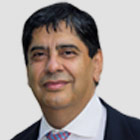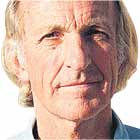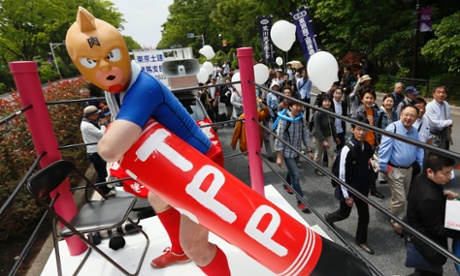
“Blessed is the nation that doesn’t need heroes" Goethe. “Hero-worship is strongest where there is least regard for human freedom.” Herbert Spencer
Search This Blog
Thursday 14 November 2013
WikiLeaks publishes secret draft chapter of Trans-Pacific Partnership

Monday 19 August 2013
Secret courts: justice conducted behind closed doors is no justice at all
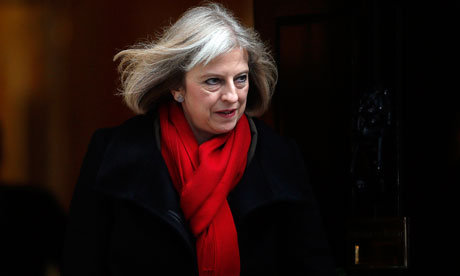
Thursday 4 April 2013
More than 175,000 UK companies have offshore directors
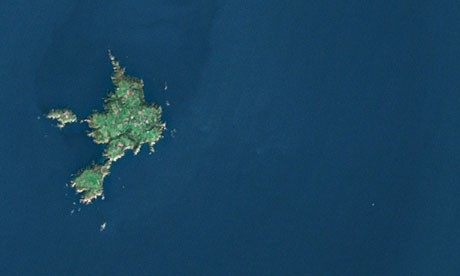
Leaks reveal secrets of the rich who hide cash offshore
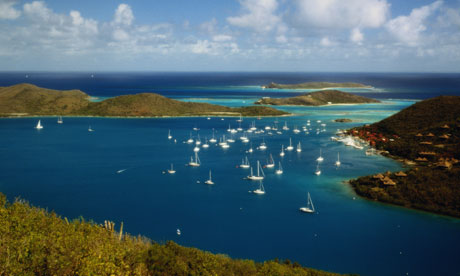
-----
Profiles of leading secret account holders
Mongolia
Offshore company: Legend Plus Capital Limited
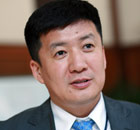
Canada
Offshore Company: Merchant (2000) US Inc Trust
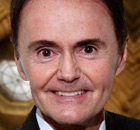
France
Offshore company: International Bookstores Ltd [IBL]
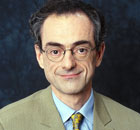
Russia
Offshore companies: Plato Management & other BVI companies owned by Severin Enterprises Inc
US
Offshore company: The Dry Trust

Azerbaijan
Offshore Companies: Arbor Investments; LaBelleza Holdings; Harvard Management; Rosamund International
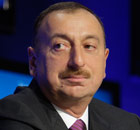
Spain
Name: Baroness Carmen Thyssen-Bornemisza
Offshore Companies: Sargasso Trustees Ltd (1996-2004) and Nautilus Ltd (1994), both registered in the Cook Is. Her son, Borja, also has some of the shares

Philippines
Offshore company: Sintra Trust [BVI]
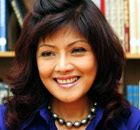
Related Articles:
1. £13tn: hoard hidden from taxman by global elite
Tuesday 12 March 2013
The justice and security bill will have a corrosive impact on individual rights.
I'm leaving the Liberal Democrats too
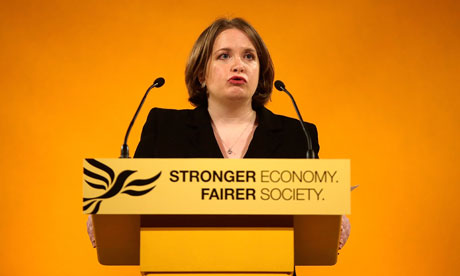
Tuesday 6 November 2012
Freemasons launch recruitment drive for young women
Nikki Roberts is someone a teacher might call a good “all-rounder”: smart, pretty, lots of friends. Aged 31, she is also a far cry from your typical Freemason. But that, if the Federation of the International Order of Co-Freemasonry has its way, is about to change.
“A lot of people have misconceptions about what Masonry is,” Ms Roberts says. Not surprising, given that for centuries members of this traditionally male club have refused to divulge what goes on behind closed doors in meetings and ceremonies. “I can say that it [the Freemasons] is an association, a fellowship if you like, dictated by a system of morals, with lot of symbols and philosophy...” Roberts explains. She compares it to an “occult”: “You need to believe in a divine intelligence or supreme being.”
Since joining the Freemasons five years ago, Roberts says her life has been transformed. “I gave up a lucrative job in the City and now I work in health and social care, something more rewarding,” she says. While cohorts at her lodge (one of the only mixed gender orders in the world, the British Federation) range from party-planners to nurses – many of them female – there are other common elements among members, she says. “The kind of people it draws are interested in being good people; we have respect for laws, we like giving to charity... we live by certain morals.” It is a “life-long commitment”, she adds.
The biggest misconception, Roberts says, is that women are not suited to joining the club. “People choose the Masons in order to become more aware and to awaken areas of their mind to their true nature; women, being naturally nurturing and intuitive, are particularly responsive to that.” That, however, is a matter of opinion. Ask Ken Kirk, 86, a former policeman and a member of the strictly-male United Grand Lodge of England and the answer is clear: “Mixed gender orders? Absurd.”
At first glance, Hexagon House, the British Federation’s Masonic headquarters in Surrey, does little to shift the fusty image. Inside this Surbiton base-camp, the 21st century seems a world away. The hallway is stuffed full of archaic artefacts, such as one might expect from a fraternal system dating back 500 years (the first clubs were recorded in Scotland in the late 16th century): ceremonial firing glasses, brass etchings and silk wall-hangings adorned with obscure symbols.
Follow the carved wooden staircase to the second floor, however, and there are small signs that that this particular order is trying to embrace the modern world.
On the shelves, alongside The Book of Mirdad and The House of the Temple (and a dark cloak hanging on the back of the door) is an A4 folder labelled “Website statistics” and a novelty mug with the logo “old masons never die / you’ll have to join to find out why”.
Worldwide, there are 6 million active Freemasons, with 2 million in the US and around 400,000 in Britain. At the moment the Federation of the International Order of Co-Freemasonry, founded by ideological polymath Annie Besant in 1902, has around 300 members (the majority of them women), and is one of the most progressive – and smaller – orders; many orders won’t let a young women through the door.
Conspiracy theories about what being a Freemason entails are rife. With famous alumni including Winston Churchill and Robbie Burns, the most common perception is that this is an elite club populated by powerful men. That is the dated image the Federation is seeking to change, explains Suzanne Jozefowicz, its secretary. “Masonic membership worldwide is dropping,” she says, and an image refresh is in order. “Freemasonry isn’t about the past, it is about the future, we need to reflect the world around us.”
Jozefowicz, who joined the British federation in 1984, is a suitably modern figurehead for the British Federation. Raised as a Catholic (“But I asked questions like ‘why isn’t God a woman?’ and never got an answer”), she worked as a school-teacher and then a rock musician before joining this, one of the few mixed-sex fellowships, in her twenties. “When confronted with challenges in life people invariably look for an explanation... [we] frequently turn to religion but more and more people are finding that doesn’t necessarily answer the sort of nagging ache within them to understand the purpose of life and what happens or not afterwards.”
So what does Freemasonry offer that is so different? “The natural processes of life come into play,” she says. “Masonry is experiential, it’s not something you can learn like you would for an exam... because Masonry is about your own personal search for truth.” Jozefowicz will confirm that there are various levels of membership, although not the existence of a supreme 33rd degree, which is one popular conspiracy.
“The most basic level is the apprentice, as found in the old building trades,” she says. “He would join with an expert craftsman and spend his time learning the basics; it was a very passive learning process...” Jozefowicz explains by way of analogy: “The apprentice then becomes a journeyman or, as we phrase it, a fellow of the craft, who is able to do work under the direction of the expert craftsman but isn’t yet able to go out of his own....”
At that point, he (or she) is given “some kind of broken token, half of which he would take, and the other half of which his mentor would keep; so the journeyman could go to different places but ultimately he was still bound to his teacher. “In the third and final degree, the secretary says, “the journeyman reaches his maturity and is able to go out as a recognised craftsman in his own right.” By which, she says, she also means “journeywoman”. “We have people of every background in our order,” she adds. “Now the majority are professionals, but we want to expand that out. We will open our door to anyone who knocks.”
Heading back downstairs to the library, past the loo (“It says Gentleman on the door but actually it is for women, too!”), Jozefowicz employs yet another analogy to explain what Freemasonry can bring to the contemporary citizen: “It is about gaining self-knowledge by way of practical instruments: there is the trowel, the gavel, the chisel, the ruler, the square... these are metaphorical instruments of measurement and calculation.”
Keeping their secrets secret is a Masonic priority. In order to ensure a low drop-out rate, candidates are thoroughly vetted; only once that has been done does the initiation begin.
At Hexagon House the magic happens in The Grand Temple room, replete with astrological symbols painted on the ceiling, there are wooden thrones surrounded by carved wooden objects and an organ. But what really goes on once the music starts and the incense has been lit?
“There is a handshake, yes,” Jozefowicz confirms. “But they are part of the things that are secret in each ceremony so [what they consist of] is one thing that I can’t disclose to you.” Even if she did, she says, the knowledge would be useless out of context: “It’s purely a means of recognition and generally speaking it’s only used within the lodge.”
What about the noose, which according to hearsay is placed around the inductee’s neck? “Let’s not call it a noose, let’s call it a cable-tow,” Jozefowicz says. “The significance is quite complex... [a similar rope] is used to moor a ship to its mooring, so it is a way of associating the person with the lodge, and also a symbol of something referred to as the silver cord... It is also is a reminder of the mortality of the individual because obviously if you get hung, you die.”
The rolled-up trouser leg? “For anything you go through in life there is always a specific preparation, and Masonry there is the same,” the secretary explains. “The practice varies, according to which obedience or which working or which lodge you go to... but always some of that is physical and some is mental. You will find in other orders that the rolled up trouser leg is part of that preparation. We tend not to get too distracted by things like that...”
“We open our arms to anybody, of any background, religion or gender,” Josefowicz concludes. “Other Masonic organisations have historically taken a lot more controlled approach to what they release in public. We have always advertised our presence, we’ve had numerous open days, people have been invited even to attend open ceremonies... We hide our answers in plain sight.”
Saturday 10 March 2012
The dirty war on WikiLeaks
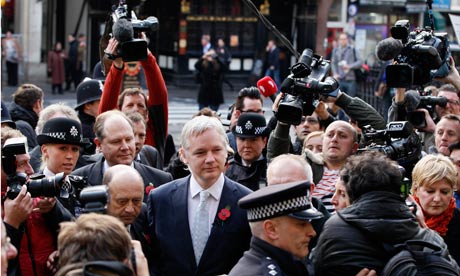
War by media, says current military doctrine, is as important as the battlefield. This is because the real enemy is the public at home, whose manipulation and deception is essential for starting an unpopular colonial war. Like the invasions of Afghanistan and Iraq, attacks on Iran and Syria require a steady drip-effect on readers' and viewers' consciousness. This is the essence of a propaganda that rarely speaks its name.
To the chagrin of many in authority and the media, WikiLeaks has torn down the facade behind which rapacious western power and journalism collude. This was an enduring taboo; the BBC could claim impartiality and expect people to believe it. Today, war by media is increasingly understood by the public, as is the trial by media of WikiLeaks' founder and editor Julian Assange.
Assange will soon know if the supreme court in London is to allow his appeal against extradition to Sweden, where he faces allegations of sexual misconduct, most of which were dismissed by a senior prosecutor in Stockholm. On bail for 16 months, tagged and effectively under house arrest, he has been charged with nothing. His "crime" has been an epic form of investigative journalism: revealing to millions of people the lies and machinations of their politicians and officials and the barbarism of criminal war conducted in their name.
For this, as the American historian William Blum points out, "dozens of members of the American media and public officials have called for [his] execution or assassination". If he is passed from Sweden to the US, an orange jumpsuit, shackles and a fabricated indictment await him. And there go all who dare challenge rogue America.
In Britain, Assange's trial by media has been a campaign of character assassination, often cowardly and inhuman, reeking of jealousy of the courageous outsider, while books of perfidious hearsay have been published, movie deals struck and media careers launched or resuscitated on the assumption that he is too poor to sue. In Sweden this trial by media has become, according to one observer there, "a full-on mobbing campaign with the victim denied a voice". For more than 18 months, the salacious Expressen, Sweden's equivalent of the Sun, has been fed the ingredients of a smear by Stockholm police.
Expressen is the megaphone of the Swedish right, including the Conservative party, which dominates the governing coalition. Its latest "scoop" is an unsubstantiated story about "the great WikiLeaks war against Sweden". On 6 March Expressen claimed, with no evidence, that WikiLeaks was running a conspiracy against Sweden and its foreign minister Carl Bildt. The political pique is understandable. In a 2009 US embassy cable obtained by WikiLeaks, the Swedish elite's vaunted reputation for neutrality is exposed as sham. (Cable title: "Sweden puts neutrality in the Dustbin of History.") Another US diplomatic cable reveals that "the extent of [Sweden's military and intelligence] co-operation [with Nato] is not widely known", and unless kept secret "would open up the government to domestic criticism".
Swedish foreign policy is largely controlled by Bildt, whose obeisance to the US goes back to his defence of the Vietnam war and includes his leading role in George W Bush's Committee for the Liberation of Iraq. He retains close ties to Republican party extreme rightwing figures such as the disgraced Bush spin doctor, Karl Rove. It is known that his government has "informally" discussed Assange's future with Washington, which has made its position clear. A secret Pentagon document describes US intelligence plans to destroy WikiLeaks' "centre of gravity" with "threats of exposure [and] criminal prosecution".
In much of the Swedish media, proper journalistic scepticism about the allegations against Assange is overwhelmed by a defensive jingoism, as if the nation's honour is defiled by revelations about dodgy coppers and politicians, a universal breed. On Swedish public TV "experts" debate not the country's deepening militarist state and its service to Nato and Washington, but the state of Assange's mind and his "paranoia". A headline in Tuesday's Aftonbladet declared: "Assange's moral collapse". The article suggests Bradley Manning, WikiLeaks' alleged source, may not be sane, and attacks Assange for not protecting Manning from himself. What was not mentioned was that the source was anonymous, that no connection has been demonstrated between Assange and Manning, and that Aftonbladet, WikiLeaks' Swedish partner, had published the same leaks undeterred.
Ironically, this circus has performed under cover of some of the world's most enlightened laws protecting journalists, which attracted Assange to Sweden in 2010 to establish a base for WikiLeaks. Should his extradition be allowed, and with Damocles swords of malice and a vengeful Washington hanging over his head, who will protect him and provide the justice to which we all have a right?
Friday 9 April 2010
How Wikileaks Shone Light On Some of the World's Darkest Secrets
By Archie Bland
08 April, 2010
The Independent
How does a website run by just five full-time staff generate so many scoops? Archie Bland investigates
When the Ministry of Defence first came across Wikileaks, staffers were stunned. "There are thousands of things on here, I literally mean thousands," one of them wrote in an internal email in November 2008. "Everything I clicked on to do with MoD was restricted... it is huge." The website, an online clearing house for documents whose authors would generally prefer them to stay in the private domain, has since been banned from the MoD's internal computers, but it did no good: eventually, that email ended up on Wikileaks. And when a US Army counter-intelligence officer recommended that whistleblowers who leaked to the site be fired, that report ended up on Wikileaks too.
The authorities were right to be worried. If any further proof were needed of the website's extraordinary record in holding the authorities to account, it came this week, in the release of shocking video footage of a gung-ho US helicopter attack in Iraq that killed 12 people, including two unarmed employees of the Reuters news agency.
The US government had resisted Freedom of Information requests from Reuters for years. But when an anonymous whistleblower passed the video on to Wikileaks, all that quickly became futile. An edited version of the tape had received almost 4 million hits on YouTube by last night, and it led news bulletins around the world.
"This might be the story that makes Wikileaks blow up," said Sree Sreenivasan, a digital media professor at New York's Columbia Journalism School. "It's not some huge document with lots of fine print - you can just watch it and you get what it's about immediately. It's a whole new world of how stories get out."
And yet despite Wikileaks' commitment to the freedom of information, there is something curiously shadowy about the organisation itself. Founded, as the group's spokesman Daniel Schmitt (whose surname is a pseudonym) put it, with the intention of becoming "the intelligence agency of the people", the site's operators and volunteers - five full-timers, and another 1,000 on call - are almost all anonymous. Ironically, the only way the group's donors are publicly known is through a leak on Wikileaks itself. The organisation's most prominent figure is Julian Assange, an Australian hacker and journalist who co-founded the site back in 2006. While Assange and his cohorts' intentions are plainly laudable - to "allow whistleblowers and journalists who have been censored to get material out to the public", as he told the BBC earlier this year - some ask who watches the watchmen. "People have to be very careful dealing with this information," says Professor Sreenivasan. "It's part of the culture now, it's out there, but you still need context, you still need analysis, you still need background."
Against all of that criticism, Wikileaks can set a record that carries, as Abu Dhabi's The National put it, "more scoops in its short life than The Washington Post has in the past 30 years". By earning its place as the natural destination for anyone with sensitive information to leak who does not know and trust a particular journalist - so far, despite numerous court actions, not a single source has been outed - Wikileaks has built up a remarkable record.
Yes, it has published an early draft of the script for Indiana Jones and the Kingdom of the Crystal Skull, and Wesley Snipes' tax returns; but it has also published the "Climategate" emails, an internal Trafigura report on toxic dumping in Ivory Coast, and the standard operating procedures for Guantanamo Bay.
Whatever the gaps in its procedures, there is little doubt that the website is at the forefront of a new information era in which the powerful, corrupt and murderous will have to feel a little more nervous about their behaviour. "There are reasons I do it that have to do with wanting to reform civilisation," Assange said in an interview with salon.com last month. "Of course, there's a personal psychology to it, that I enjoy crushing bastards. I like a good challenge."
Full disclosure: What we wouldn't know without Wikileaks
Trafigura's super-injunction
When commodities giant Trafigura used a super-injunction to suppress the release of an internal report on toxic dumping in the Ivory Coast in newspapers, it quickly appeared on Wikileaks instead. Accepting that the release made suppression futile, Trafigura lifted the injunction.
The CRU's 'Climategate' leak
Emails leaked on the site showed that scientists at the UK's Climate Research Unit, including director Phil Jones, withheld information from sceptics
The BNP membership list
After the site published the BNP's secret membership list in November 2008, newspapers found teachers, priests and police officers among them. Another list was leaked last year. The police has since barred officers from membership.
Sarah Palin's emails
Mrs Palin's Yahoo email account, which was used to bypass US public information laws, was hacked and leaked during the presidential campaign. The hacker left traces of his actions, and could face five years in prison.
Get a free e-mail account with Hotmail. Sign-up now.
